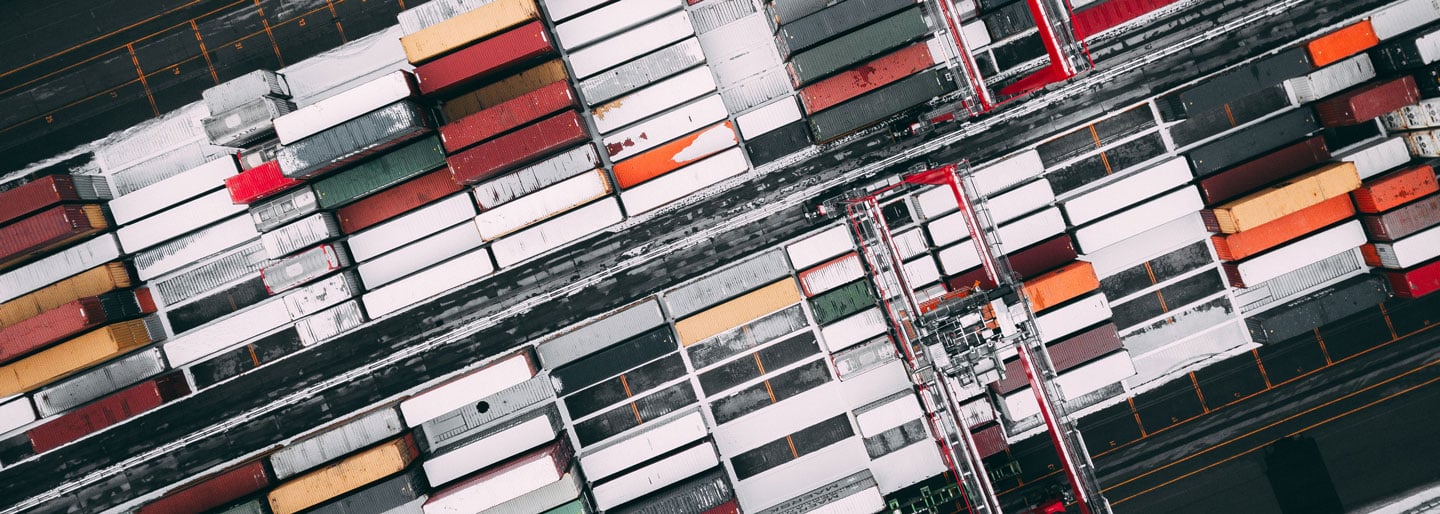The transportation industry is well known for actual prices exceeding the original quotes. Deviations from the planned schedule or the initial transport solution can cost transport buyers dearly. Additional costs are passed along to the customer with no care – often with an unjustified and unreasonable profit margin for the transport seller. Learn how to avoid the frustrations and the additional costs, and how the industry as a whole is slowly changing direction.
Excellent wine and freight transport
When I go to a restaurant, and we have decided on a menu, then I know the price and have an expectation of what we will be served and the experience that comes with it. If we decide on slightly more expensive wine and order a dessert, then we know which effect this will have on the bill. As the food arrives, I can look the waiter – and sometimes even the cook – in the eyes and express my enthusiasm or disappointment, which will immediately require a reaction. This sequence of events is part of the delivery of the specific product – the food. But the product, in this case, is much more than the food itself, as also the service, the surroundings and the personal interaction creates the entire experience.
In the field of transportation, things go about a little differently. A similarity is that the transport starts with a specific need that can be solved with a product – in this case, a transport service. In the same way, as in a restaurant you are now introduced to a whole pallet of different transport services, and you often have to choose a product based on prices, quality of services, maybe specified by transit times, mode of transportation or even features like tracking and communication. The transport buyer can also choose extra services from the ‘menu’ such as insurance, customs clearance, pick-up and delivery. As you reach a decision, you have established an expectation for the service you have booked and for what the price will be.
When everything is agreed upon, and the transport process has started, then we notice the difference between going to a restaurant and ordering a transport service – and in this case the transport industry has a lot to learn from the restaurant business.
”Unfortunately the price has increased as I decided to manage your shipment differently than agreed”
If the chef runs out of ingredients for a specific dish on the menu, then the waiter will inform you that the restaurant regrettably cannot accommodate your desired choice, and will ask you to have another look and maybe select a different dish from the menu. If I choose to do so, I immediately adjust my expectations to both the product and the price.
Many unforeseen incidents occur within the shipping world. Often there are elements in the transport solution that the freight forwarder cannot or will not handle in the manner initially intended when you ordered the shipment. Then you will often experience that your ‘main course’ is never served. Alternatively, the missing element may be replaced by a different one without you knowing until you receive the final invoice stating that the price is higher than expected.
For example, customs clearance might have required a specific document, which your freight forwarder did not think of when you booked the transport, and therefore he has now added the cost of producing that document. Or that the forwarder on his initiative decided to pack your shipment on pallets, thus increasing the total volume of your goods and making the price increase accordingly.

What is ironic is that forwarders justify these additional costs by stating that it is out of their control – even though it is often their subcontractor who gets the profit. Moreover, we never come across a case where a price has gone down – concluding that the price changes are purely one-sided.
If you are at a restaurant and there is an issue with your food or wine, you figure this out straight away and can either ask for a new order or not pay for it. That makes all the difference compared to the shipping business, where you usually do not know if anything happens that differs from what you initially agreed. Another fact is that you often do not have a relation to the people who handle your products, as they are subcontractors usually one or more links from the forwarder. And not least, when introduced to your bill for the service you apparently have received, you have no way of declining the extra costs, as payment is due before the forwarder will deliver your goods.
Delays – that’s on you
The experienced transport buyer will nod in recognition to many of the above arguments, while the unexperienced transport buyer will probably feel somewhat intimidated. We illustrate the issues with a specific and straightforward example.
In early May I asked a medium-sized freight forwarder for a price on a 40-foot container from Qingdao in China to Denmark on EXW terms, which means that it is a door to door shipment. I informed the forwarder that the goods would be ready at the factory to be loaded into the container by May 23rd. I received a satisfactory quote back which I agreed to. In the quote, it said that the container was planned to load the ship MSC Jade in Qingdao on May 29th.
Precisely what happened to the goods in China, I have not been able to figure out. But when following up with the freight forwarder on May 30th to get a confirmation on the original delivery date, it proved very difficult to get a straight answer. After countless emails and calls back and forth I finally got an answer on June 4th saying that the container had left on MSC Jade as scheduled, but that the ship was delayed and did not leave Qingdao until June 2nd. Naturally, I then asked if there was anything else I needed to be aware of related to this delay, where to the forwarder replied:
“Unfortunately the price has gone up by USD 400 because of a freight rate increase per June 1st.”
I am well aware of the general rate increases, or GRI, and also that this rate increase is something the shipping companies try to impose on the transport buyers on fixed dates. But the fact that I as a transport buyer has to pay for a delay caused by the forwarder’s subcontractor, well knowing that this rate increase only profits the respective subcontractor is absurd. At the same time – even though I cannot document this – there is a suspicion that the real rate increase the freight forwarder pays to MSC may not fully reach USD 400. Otherwise, the incentive for rejecting the rate increase with the shipping company would be higher than merely charging the transport buyer.
To finish the story, I rejected the rate increase from the forwarder, to which he replied:
“We cannot be held responsible for a two-day delay, which by the way cannot be termed as a delay. Therefore the price is not negotiable. The container will be released when payment has been received. As you know the industry, you should understand this.”
Why the forwarder does not think that this delay can be termed as a delay, I do not comprehend, but especially the last sentence is very representative of how the transport industry works. I replied the following:
“We had the impression that you were different from other freight forwarders, but apparently this is not the case. And no, I cannot understand or accept your attitude – regardless of my background as a forwarder. By all means, send us the invoice you see fit – and meanwhile, here at Transporteca, we have agreed, that this will be the last time we will need your services. Out of principle, we only work with forwarders, who take responsibility for the service they provide.”

Additional costs are inevitable
Many factors affect the supply chain. If a forwarder should cover all financial risks in his pricing, then prices would increase drastically. It is a fact that elements out of the forwarder’s and the subcontractor’s control can have a significant impact on the costs. For example, the volume or the weight of the goods can exceed the amount originally booked. Perhaps special handling of the products are required, which the forwarder was not notified about, or a storm has caused a delay which thereby requires a dedicated truck for the final delivery to make the original delivery date.
There are rules and international conventions, which limit the transport seller’s liability with the purpose of maintaining low transport prices. However, these rules and conventions only relate to costs of lost or damaged goods, and not to operational expenses of delivering the transportation service. You could argue they should cover unexpected operational costs as well, as to ensure clear rules for what you can be required to pay for as a transport buyer in addition to the price quoted in the original offer. But, they do not. And therefore within the transportation industry, there is a tendency that extra costs are the norm rather than the exception. They are viewed upon as a buffet of economic gains, which are gradually incorporated into the original pricing. A range of services and exceptions which the forwarder seemingly can choose freely from, and charge for whatever he sees fit – without further explanation. Especially given that the forwarder can always play the ‘Payment against delivery’-card, taking your cargo hostage until he gets his payment.
I fully understand that unforeseen additional costs can occur, but as a forwarder, there should be a professional pride in looking into these and assessing who is rightfully entitled to pay for them. In addition, I have a hard time making sense of taking the goods, and thus transport buyers, hostage without at least trying to reach a solution acceptable to all parties.
The two schools on the transport price
There is the old school, like the example illustrated above about the container from Qingdao. Here the forwarder feels he is in his right to forward all costs associated with your shipment, without care, without asking questions, regardless of who or what has caused them. This is a school where the forwarder knows he is going to win, as the goods are in the forwarder’s possession, and as the delivery is clearly important to you. At the same time, you do not have the professional background or economy to make a ‘case’ out of it. And yes, the forwarder wins and gets his payment. And yes, we get frustrated as transport buyers and swear that we will never use that same forwarder again. For our next shipment we choose a different forwarder -just to learn- that they are from the same (old) school: The school of the transport industry.
Then there’s the new school. This is the school that is looking to the restaurant business, and the school that knows that when I have to decide on a restaurant to invite my family out for dinner, the research starts on TripAdvisor or Facebook, followed by a validation on Yelp or Trustpilot.

Bottom line, it requires a change of attitude to evaluate irregularities in the delivery of the transport solution constructively and to place the blame for the delays and additional costs on the right shoulders. Yes, there can be additional costs which the transport buyer must pay, but they should be both legitimate, well-founded, and communicated in a timely manner.
Just as a transport buyer must be critical of the costs they are presented with, the freight forwarder also has a responsibility to deal critically with the costs that their subcontractors present to them. A transport buyer will not be surprised to pay more for the transport, if the goods take up two containers instead of one – as long as I am aware of the cost early on (so I have the chance to solve the misunderstanding with my supplier), and I do not feel I am being ripped off simply because the situation has changed, and the goods are in my freight forwarder’s custody.
However, just as well as I as the transport buyer am ready to pay for additional costs that have been caused by me or my supplier, then I also expect that the forwarder takes on the responsibility for his own and his subcontractor’s actions and services. If he does this, then they belong to the new school.
The principle of fairness
Fairness relates to justice, even though the meaning is probably not quite the same. If something is just, it is right. If something is fair, then it both is and feels right for all parties involved.
Here at Transporteca, we follow the principle of fairness. We know that additional costs occasionally occur, and of all people, we know that if we do not handle these rightfully, we will suffer on social media and Trustpilot. We do not automatically take responsibility and pay for additional costs on behalf of our customers, even though we offer a price guarantee. But we do deal with each additional cost, and evaluate who should rightfully be charged – the freight forwarder, us or our customer. If we feel that the forwarder or we have the fault, then we never bother our customers with it. We have many intense battles with freight forwarders, like in the example above, but we keep it between us and the forwarder, so you do not have to worry or waste your time.
Should there be costs, which we assess is rightfully yours to pay, then we introduce you to it right away along with the arguments to why these costs have accrued, and documentation for the actual costs, if you wish. This way providing full transparency. Yes, some customers still will not accept an additional cost, but our overall experience is that the vast majority of our customers completely understand and accept a given fee – as long as the reasoning is clear and they feel they are treated fairly.
To enforce this change in the industry, that Transporteca is currently working hard at, it is necessary that we can vouch for the service and the product we offer. It must feel right – and be fair. At the same time we know, that if we misstep and we do not manage to explain the costs good enough, or our customer does not agree that is it fair, then we can read about it on Trustpilot the next day. That alone is motivation to increase our efforts so our customers get a good experience, even when there are unexpected costs involved.
We hope that we with this increased digitization and transparency within the transport industry will experience a shift from the old to the new school. If the forwarders from the old school want to stay in business, then they need to make the shift. And fortunately for them, these years the shift is moving faster than the industry ever imagined.
Epilogue
When you are out looking for a transport quote, it is always important to get an all-in price. This basically means that you have a better overview of the total cost of your transport. However, as we have seen countless examples of and described several times, the transport industry is known for adding extra unexpected costs during transport. In case this happens, you must be critical, and not be scared to push back – despite the fact that the forwarder always has the upper hand as the goods are in his custody.
What other options do you have? When you choose a forwarder, then look at more than the price. Think about the forwarder’s general reputation, check other sources, get recommendations and read reviews before you make your decision. Look for forwarders who you think are fair.

Be prepared for additional costs, and add these to your budget. Transport is usually a marginal cost of the total landed product cost, so even if you add 30 % to the transport cost to your business case, then it probably will not break your budget. Then if no additional costs are charged, it is simply an upside.
At Transporteca we care deeply that our customers get a fair treatment. We do not blindly forward additional cost, and we either pay the costs ourselves or push back the costs to our forwarder, when there is no need to burden our customers.
Standing across from the forwarder we have the benefit – compared to many of our customers – of a much bigger purchasing power and experience in the industry to know what is right and what is wrong.
When you order online on transporteca.co.uk, we ensure that the forwarders and trucking companies are carefully screened and that Transporteca will take on a possible discussion on additional costs on your behalf if any mishaps should occur.
Written by Morten Laerkholm, CEO and Founder, Transporteca